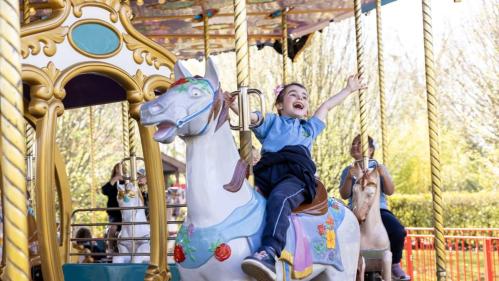How do you want to leave your children and grandchildren a great legacy? Passing on values and traditions across all generations is crucial. It provides a strong relationship foundation, fosters a sense of identity and belongingness, and ensures the preservation of cultural and familial heritage.
Instill core values, such as empathy, integrity, and respect, to equip your children with guiding principles. It’ll also help promote a cohesive society and maintain a connection to your roots, enabling personal growth and continuity in an ever-changing world. This article will explore how you, as a parent, can make this happen in the modern digital age.
Best Parent-Child Bonding Across Generations
Below are the various generational stages and their corresponding parent-child bonding activities:
1. Early Childhood Years
During the early childhood years, parent-child bonding activities aren’t only enjoyable but also contribute significantly to a child’s development. The best bonding activities in this stage include reading books, imaginative play, cooking, baking, music and dance, and arts and crafts.
Remember, discipline and healthy practices start in the early childhood years. As a parent, you must teach your little ones the value of being kind and considerate towards others. Help them cultivate a sense of gratitude for what they have and the acts of kindness that people show them.
Moreover, establish regular meals, pray together, and celebrate special occasions, like Mother’s Day and Father’s Day. These traditions emphasize the value of spending quality time together as a family,
2. School Age Years
During the school-age years, parent-child bonding continues to be important for fostering a strong relationship and supporting the development of children. It’s also the perfect time to instill discipline and introduce family traditions while enjoying fun activities.
Engage in activities, such as playing a sport together, working on a puzzle, gardening, or pursuing a creative hobby, such as creating and sharing unique Fathers Day gift ideas. Additionally, establish mealtime rituals, such as sharing stories, to create a sense of togetherness and enjoyment during meals.
You can also hold regular game nights where the whole family can participate in board, card, or interactive video games to promote healthy competition. During summer, you can promote physical activity, exploration, and shared experiences through outdoor adventures such as hiking, biking, camping, or exploring nature trails.
3. Teenage Years
Adolescence is the best time to get involved in community work to teach your children empathy, compassion, and a sense of social responsibility. So, it’s a good idea to find local community service projects or charity organizations where you can contribute your time and skills together.
Setting aside regular time for one-on-one conversations with your teenager is also crucial during the adolescent years. Listen attentively to their thoughts, feelings, and experiences to build trust and deepen the parent-child connection. You can support personal goals and aspirations by talking to your teen about the future and attending their performances, competitions, or events.
4. Young To Middle Adulthood Years
As young adults transition into independence, allowing them space to explore their principles and beliefs is important. Teach your young adult children the value of hard work, persistence, and determination in achieving their aspirations.
It’s also important to emphasize respect, effective communication, empathy, and setting boundaries in all relationships, including friendships, romantic partnerships, and professional connections. Furthermore, outdoor activities such as hiking, biking, yoga, or gardening also provide opportunities for conversation, bonding, and shared enjoyment of nature.

Tips On How To Pass On Values And Traditions
Passing values and traditions to your children and grandchildren is a meaningful way to preserve cultural heritage and ensure that important beliefs and practices are carried forward. Here are some suggestions on how to accomplish this:
1. Storytelling
Whether through oral storytelling or written accounts, stories can engage and inspire future generations, providing them with a deeper understanding of their roots.
2. Gatherings and Celebrations
These events create opportunities for intergenerational interaction and allow younger family members to witness and participate in rituals and customs firsthand.
3. Lead By Example
Actively demonstrate principles in your own life because consistency between what you say and what you do is crucial for successfully transmitting your principles and beliefs.
4. Education and Mentorship
Take the time to educate younger family members about the history and significance of your traditions. Encourage questions and open discussions to foster a deeper understanding and engagement.
5. Document and Preserve
Write personal memoirs, create family trees, capture photographs, or even create digital archives to ensure future generations can access your rich cultural heritage.
6. Cultural Immersion and Experiences
Encourage your loved ones to participate in cultural festivals actively, visit historical sites, and engage in community events that promote cultural awareness and understanding.
Parent-child bonding activities must instill values and traditions that will help continue a family’s legacy. Parents play an important role in honing their children’s knowledge, skills, and attitude from early childhood, school-age, teenage, and adult years. With the right guidance, you can also impart wisdom, culture, and best practices to your children, which they can pass on to future generations.






